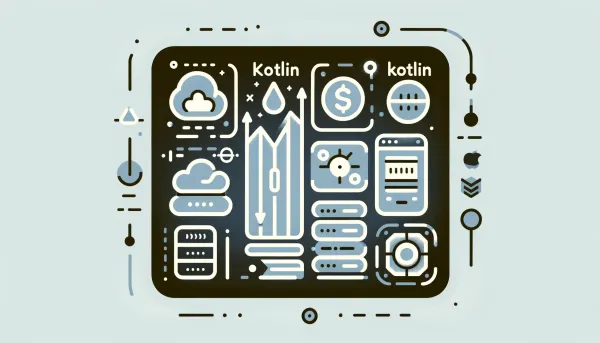Navigating Jetpack Compose: The Case for MutableIntState over MutableState
If you've seen this warning: "Prefer mutableIntStateOf instead of mutableStateOf." and want to dive slightly deeper than usual into what it means, this post is for you.

Who This Post is For
If you've been using Jetpack Compose, you've probably seen this warning: "Prefer mutableIntStateOf instead of mutableStateOf." For those who are curious and want to dive slightly deeper than usual into why your IDE (most likely Android Studio) provides such a suggestion, this post is for you. If this doesn't sound like you, then the TL;DR is that mutableIntStateOf helps improve performance by avoiding autoboxing.
The Differences
Apart from MutableIntState, there are MutableDoubleState, MutableFloatState, and MutableLongState, which are similar in nature. For brevity, this post only discusses the differences between MutableIntState and MutableState, and the learnings should translate perfectly to the other types of mutable states. First, let's take a look at the definitions of mutableIntStateOf and mutableStateOf in the Android Developer official documentation.
The MutableIntState class is a single value holder whose reads and writes are observed by Compose. Additionally, writes to it are transacted as part of theSnapshotsystem. On the JVM, values are stored in memory as the primitiveinttype, avoiding the autoboxing that occurs when usingMutableState<Int>
- Definition of MutableIntState -
The MutableState class is a single value holder whose reads and writes are observed by Compose. Additionally, writes to it are transacted as part of theSnapshotsystem.
- Definition of MutableState -
The only difference is that values are stored in memory as primitive types to avoid autoboxing. So, why avoid autoboxing?
What is Autoboxing?
According to the official Oracle docs, autoboxing is the automatic conversion between the primitive types and their corresponding object wrapper classes by the Java compiler. The conversion comprises two phases: boxing and unboxing.
Boxing is the act of converting a primitive type to its corresponding wrapper class (e.g. int → Integer).
Unboxing is the act of converting a wrapper class of a primitive type to the primitive type itself (e.g. Integer → int).
Why Wrapper Classes?
One purpose of the wrapper classes is to enable primitive types to be used when defining classes, interfaces, or functions that utilize generics such as Collection or, in this case, MutableState. To learn more about generics in Java, see the Oracle lessons.
Wrapper classes also play a major role in Kotlin. While Kotlin provides convenient features, the Kotlin compiler for JVM compiles Kotlin source files into Java class files, which are then run on the JVM. Since primitive types can't be null, in Kotlin, all primitive types are wrapped in their corresponding wrapper classes to enable arguably the most critical Kotlin feature - null safety.
For the above reasons, converting between primitive types and their wrapper classes is prevalent. Hence, autoboxing saves us the hassle of boxing and unboxing explicitly every time.
Why Avoid Autoboxing?
The short answer is performance.
When it comes to memory, the primitive type int takes 4 bytes, while its wrapper class Integer takes 16 bytes (300% overhead). Note that the overhead depends on the specific primitive type, so it's not always 300% memory overhead.
Despite the memory overhead, it might not be a problem if we only have a small list of items or a single variable such as MutableState<Int>. The problem lies in the process of disposing of the unused wrapper classes. For that, the garbage collector needs to work hard, which, in turn, decreases the runtime in the best-case scenario. Sometimes, the garbage collector doesn't do a good job of cleaning up the garbage. In that case, we ended up with a severe memory leak, depending on how often a view needs to recompose. Check out Cameron's demonstration on the performance implications of Autoboxing.
With such performance costs, it just makes sense that Google introduced MutableIntState to avoid autoboxing.
Hope you enjoy reading this post! Please consider subscribing to our website to support more insightful posts to come.😁
Reference






